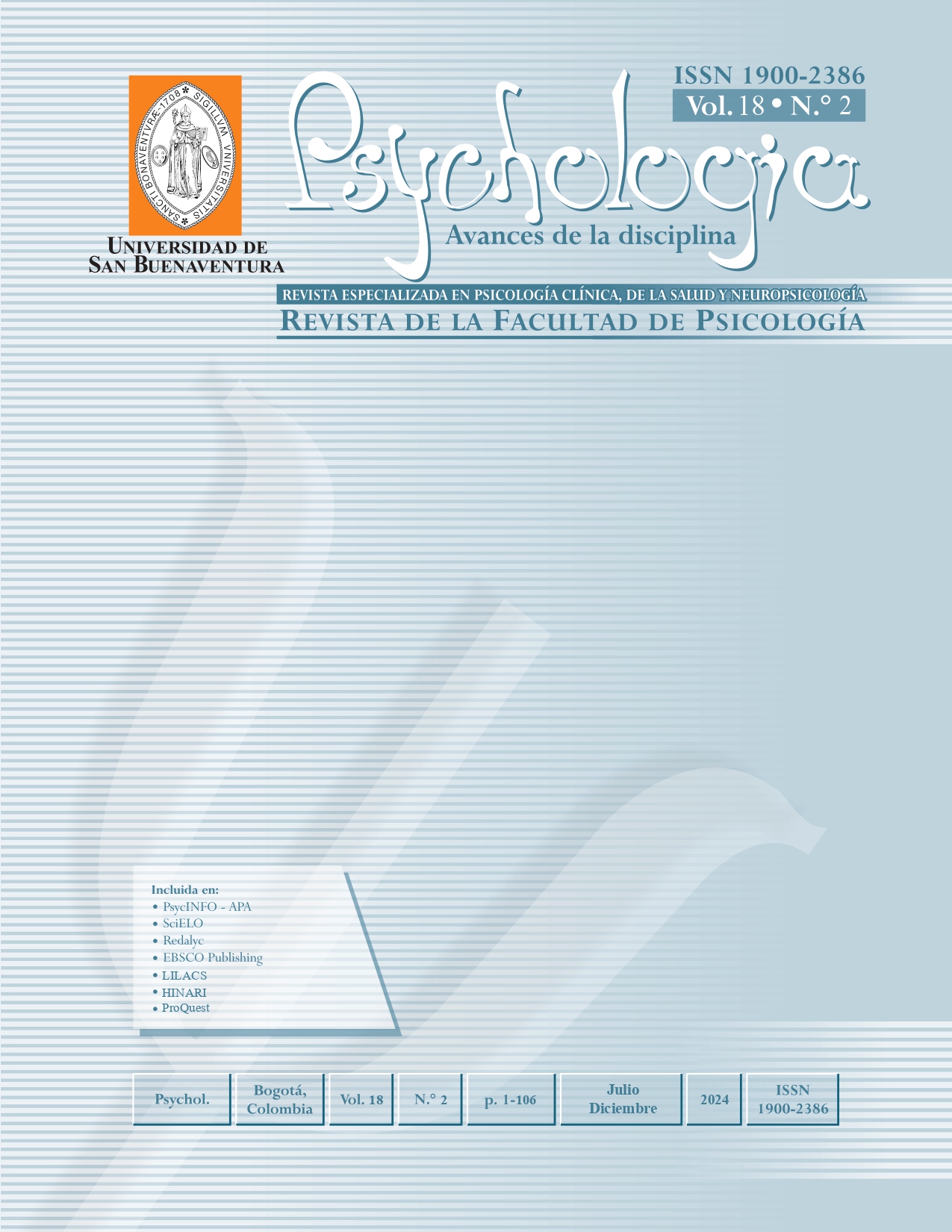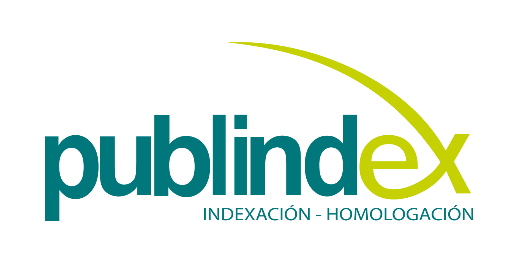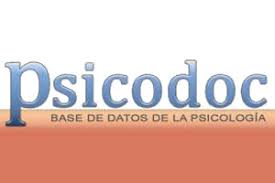This journal provides open, immediate access to its contents, based on the principle that offering the public free access to research helps to promote a higher global exchange of knowledge.
As such, all journal articles are published under a Creative Commons Attribution-NonCommercial-ShareAlike 4.0 International License (CC BY-NC-SA), by which commercial use of the original work or its possible derived works is not allowed, and the distribution thereof must be done with the same license elements regulating the original work.
http://creativecommons.org/licenses/by-nc-sa/4.0/
Abstract
The objective of this study was to explain to what extent resilience and coping strategies influenced the positive mental health of young Mexican university students who have experienced the COVID-19 pandemic. The sample was made up of 1.042 Mexican university students between 18 and 24 years of age (M = 20.5 SD = 1.9). 78.4% are women (817). The instruments: Mental Health Continuum-Short Form, Resilience Scale, Coping Scale and Fear of COVID-19 Scale were applied in online format. A model was obtained with satisfactory goodness-of-fit indices (X2 = 532.913, df = 114), resilience and functional coping are important factors that influence SMP, so they are variables that should be considered in psychological intervention programs to promote the health of university students.
References
Ato, M., López, J., & Benavente, A. (2013). Un sistema de clasificación de los diseños de investigación en psicología. Anales de Psicología, 29(3), 1038-1059. https://doi.org/10.6018/analesps.29.3.178511.
Barragán, E. A. R. (2021). Florecimiento y salud mental óptima en tiempos de COVID-19. Psicología Iberoamericana. 29(1). htps://orcid.org/0000-0001-5063-603X.
Bassi, M., Negri, L., Delle, F. A., & Accardi, R. (2021). The relationship between post-traumatic stress and positive mental health symptoms among health workers during COVID-19 pandemic in Lombardy, Italy. Journal of Affective Disorders, 280, 1-6. https://doi.org/10.1016/j.jad.2020.11.065.
Campbell-Sills, L., & Stein, M. B. (2007). Psychometric analysis and refinement of the Connor-Davidson resilience scale (CD-RISC): validation of a 10-item measure of resilience. Journal of Traumatic Stress, 20(6), 1019-1028. https://doi.org/10.1002/jts.20271.
Daniel-González, L., García, C. C. H., Valle de la O, A., Caycho-Rodríguez, T., & Martínez-Gómez, E. (2020). Validation study of the 10-item Connor-Davidson resilience scale among mexican medical and psychology students. Revista de Psicología y Ciencias del Comportamiento de la Unidad Académica de Ciencias Jurídicas y Sociales, 11(2), 4-18. https://doi.org/10.29059/rpcc.20201215-114.
Devi, S. (2020). Psychological resilience and coping strategies during covid-19 pandemic lockdown. Journal of Xi'an University of Architecture & Technology, 7(4), 2925-2933. https://www.xajzkjdx.cn/gallery/279-april2020.pdf.
Eidman, L., Bender, V., Arbizu, J., Lamboglia, A. T. & Correa, V.L. (2020). Bienestar emocional, psicológico y social en adultos argentinos en contexto de pandemia por COVID-19. Psychologia, 14(2), 69-80. https://doi:10.21500/19002386.4851.
Eidman, L. (2021A). El continuo de salud mental durante el confinamiento por COVID-19 en adultos argentinos. Acción Psicológica, 18(1), 83-92. https://doi.org/10.5944/ap.18.1.29711.
Eidman, L. (2021B). El continuo de salud mental durante la pandemia por COVID-19 en población general de adultos argentinos. Revista Costarricence de Psicología, 40(2), 93-105. http://dx.doi.org/10.22544/rcps.v40i02.02.
Escobedo, P. M. T., Hernández, G. J. A., Estebané O., V., & Martínez, M. G. (2016). Modelos de ecuaciones estructurales: características, fases, construcción, aplicación y resultados. Ciencia y Trabajo, 18(55), 16-22. https:/doi.org/10.4067/S0718-24492016000100004.
Fluharty, M., Bu, F., Steptoe, A., & Fancourt, D. (2021). Coping strategies and mental health trajectories during the first 21 weeks of COVID-19 lockdown in the United Kingdom. Social Science & Medicine, 279, 1-5. https://doi.org/10.1016/j.socscimed.2021.113958.
García, S, X., Molinero, O., & Salguero, A. (2016). Relationship between resilience and coping strategies in competitive sport. Perceptual and Motor Skills, 122(1). 336-349. https://doi.org/10.1177/0031512516631056.
García-Reyna, B., Castillo-García, G. D., Barbosa-Camacho, F. J., Cervantes-Cardona, G. A., Cervantes-Pérez, E., Torres-Mendoza, B. M., Fuentes-Orozco, C., Pintor-Belmontes, K. L., Guzmán-Ramírez, B. G., Bernal-Hernández, A., González-Ojeda, A., & Cervantes-Guevara, G. (2021). Fear of COVID-19 scale for hospital staff in regional hospitals in Mexico: a brief report. International Journal of Mental Health and Addiction, 20, 895-906. https://doi.org/10.1007/s11469-020-00413-x.
Graham, M. A., & Eloff, I. (2022). Comparing mental health, wellbeing and flourishing in undergraduate students pre- and during the COVID-19 pandemic. International Journal of Environmental Research and Public Health, 19(7438). https://doi.org/10.3390/ ijerph19127438.
Gurvich, C., Thomas, N., Thomas, E., Hudaib, A., Sood, L., Fabiatos, K., Sutton, K., Isaacs, A., Arunogiri, S., Sharp, G., & Kulkarni, J. (2020). Coping styles and mental health in response to societal changes during the COVID-19 pandemic. International Journal of Social Psychiatry, 1-10. https:/doi.org/10.1177/0020764020961790.
Harvey, N. J., Obando-Guerrero, L. M., Hernández-Ordoñez, K. M., & De la Cruz-Gordon, E. K. (2021). Bienestar psicológico y estrategias de afrontamiento frente a la COVID-19 en universitarios. Universidad y Salud, 23(3), 207-216. https://doi.org/10.22267/rus.212303.234.
Hernández, S. R., Fernández-Collado, C., & Baptista, L. P. (2006). Metodología de la investigación. Mc Graw Hill.
Hou, T., Zhang, T., Cai, W., Song, X., Chen, A., Deng, G., & Ni, C. (2020). Social support and mental health among health care workers during Coronavirus disease 2019 outbreak: a moderated mediation mode. Plos One, 15(5), 1-14. https://doi.org/10.1371/journal.pone.0233831.
Huang, W., Cai, S., Huang, J., Sun, X., Su, Y., Dai, M., & Lan, Y. (2021). Personality profiles and personal factors associated with psychological distress in chinese nurses. Psychology Research and Behavior Management, 14, 1567-1579. https://doi.org/10.2147/PRBM.S329036.
Hussong, A. M., Midgete, A. J., Thomas, T. E., Coffman, J. L., & Cho, S. (2021). Coping and mental health in early adolescence during COVID 19. Research on Child and Adolescent Psychopathology, 49, 1113-1123. https://doi.org/10.1007/s10802-021-00821-0.
Kara, A., & Çanakç, E. (2022). The mediating role of resilience in the relationship between fear of COVID-19 and mental health continuum during the COVID-19 pandemic process. International Journal of Progressive Education, 18(4), 148-165. https:/doi.org/10.29329/ijpe.2022.459.11.
Keyes, C. L. M. (2009). Atlanta: brief description of the mental health continuum short form (MHC-SF). http://www.sociology.emory.edu/ckeyes/.
Keyes, C. L. M. (2002). The mental health continuum: from languishing to flourishing in life. Journal of Health and Social Behavior, 43(2), 207-222. https:/doi.org/10.2307/3090197.
Khalid, M. Q., Muhammad, S. M., Ahmad, Q., W., Zakar, R., & Fischer, F. (2022). Role of positive mental health in reducing fears related to COVID-19 and general anxiety disorder in Khyber Pakhtunkhwa, Pakistan. MBC Psychology, 10(163) https://doi.org/10.21203/rs.3.rs-430599/v1.
Konaszewski, K., Niesiobędzka, M., & & Surzykiewicz, J. (2021). Resilience and mental health among juveniles: role of strategies for coping with stress. Health and Quality of life outcomes, 19(58), 1-12. https://doi.org/10.1186/s12955-021-01701-3.
Kwasi, A.D., Lin, CH., Imani, V., Saffari, M., Griffiths, M. D., & Pakpour, A. H. (2020). The fear of COVID-19 scale: development and initial validation. International Journal of Mental Health and Addiction, 20, 1537-1545. https://doi.org/10.1007/s11469-020-00270-8.
Lai, K. (2020). Fit difference between non-nested models given categorical data: measures and estimation. Structural Equation Modeling: A Multidisciplinary Journal, 1-22. https://doi.org/10.1080/10705511.2020.1763802.
Lai-Tong, L., Chiu-Yang, T. A., Cheng, H., Yuen-Yu, Ch. C., Wai-San, T., Chien, W., & Wai-Chi, Ch. S. (2022). The impact of COVID-19 on the mental-emotional wellbeing of primary healthcare professionals: a descriptive correlational study. International Journal of Mental Health Promotion. 25(3), 327-342. https://doi.org/10.32604/ijmhp.2022.026388.
Lazarus, R.S. & Folkman, S. (1984). Stress, appraisal and coping: New York, Springer.
Liang, S., Liu, H., Lu, Y., Wu, S., Chien, Ch., & Tsay, S. (2020). The influence of resilience on the coping strategies in patients with primary brain tumors. Asian Nursing Research, 14, 50-55. https://doi.org/10.1016/j.anr.2020.01.005.
Li, J., Chen, Y., Zhang, J. L. M., Välimäki, M., Li, Y., Yang, S., Tao, Y., Ye, B., Tan, C., & Zhang J. (2020). The mediating role of resilience and self-esteem between life events and coping styles among rural left-behind adolescents in China: a cross-sectional study. Frontiers in psychiatry, 11, 1-13.
Lucio, E., Maqueo, G., & Durán, P. C. (2016). Propiedades psicométricas de la escala de afrontamiento para adolescentes: EA-A. Revista Mexicana de Investigación en Psicología, 8(1), 36-48. https://www.medigraphic.com/cgi-bin/new/resumen.cgi?IDARTICULO=70428.
Lucio, G. E. &, Monjarás, R. M. T. (2020). Relación entre los tipos de afrontamiento y el estrés cotidiano en preescolares. Ansiedad y Estrés, 26, 20-26. https://doi.org/10.1016/j.anyes.2019.12.004.
Macia, P., Barranco, M., Gorbeña, S., Álvarez-Fuentes, E., & Iraurgi, I. (2021). Resilience and coping strategies in relation to mental health outcomes in people with cancer. PLoS ONE, 16(5), 1-13. https://doi.org/10.1371/journal.pone.0252075.
Mertens, G., Gerritsen, L., Duijndam, S., Salemink, E., & Engelhard, I. M. (2020). Fear of the coronavirus (COVID-19): predictors in an online study conducted in march 2020. Journal of Anxiety Disorders, 74, 102258. https://doi:10.1016/j. janxdis.2020.102258.
Naem, F., Irfan, M., & Javed, A. (2020). Coping with Covid-19: Urgent need for building resilience through cognitive behaviour therapy. Khyber Medical University Journal, 12(1), 1-3. https://doi.org/10.35845/kmuj.2020.20194.
Organización Mundial de la Salud (2021). https://www.who.int/es/news-room/fact-sheets/detail/mental-health-strengthening-our-response.
Peng, L., Ye, Y., Wang, L., Qiu, W., Huang, S., Wang, L., He, F., Deng, L., & Lin, J., (2022). Chain mediation model of perceived stress, resilience, and social support on coping styles of chinese patients on hemodialysis during COVID-19 pandemic lockdown. Medical Science Monitor, 28, 1-10. https:/doi.org/10.12659/MSM.935300.
Ramos-Lira, R., Rafful, C., Flores-Celis, K., Mora, R. J., García-Andrade, C., Rascón. G. M. L. Bautista, A. N., & Cervantes, M. C. (2020). Emotional responses and coping strategies in adult mexican population during the first lockdown of the COVID-19 pandemic, an exploratory study by sex. Salud Mental, 43(6), 243-251. https://www.medigraphic.com/cgi-bin/new/resumen.cgi?IDARTICULO=97580.
Rettie, H., & Daniels, J. (2020). Coping and tolerance of uncertainty: predictors and mediators of mental health during the COVID-19 pandemic. American Psychologist, 76(3), 427-437. https:/doi.org/10.1037/amp0000710.
Ryff, C. D., & Keyes, C. L. M. (1995). The structure of psychological well-being revisited. Journal of Personality and Social Psychology, 69, 719-727. https:/doi.org/10.1037/0022-3514.69.4.719.
Sampogna, G., Del Vecchio, V., Giallonardo, V., Luciano, M., Albert, U., Carmassi, C., Carrà, G., Cirulli, F., Dell’Osso, B., Menculini, G., Nanni, M., Pompili, M., Sani, G., Volpe, U., Bianchini, V., & Fiorillo, A. (2021). What is the role of resilience and coping strategies on the mental health of the general population during the COVID-19 pandemic? results from the italian multicentric COMET study. Brain Sciences, 11(1231), 1-16. https://doi.org/10.3390/brainsci11091231.
Sandín, B., Valiente, R. M., García-Escalera, J., & Chorot, P. (2020). Impacto psicológico de la pandemia de COVID-19: Efectos negativos y positivos en población española asociados al periodo de confinamiento nacional. Journal of Psychopathology and Clinical Psychology, 25(1), 1-22. https://doi:10.5944/rppc.27569
Seiffge-Krenke, I. (2011). Coping with relationship stressors: a decade review. Journal of Research Adolescence, 21(1), 196-210. https://doi.org/10.1111/j.1532-7795.2010.00723.x.
Skalski, S. B., Konaszewski, K., Büssing, A., & Surzykiewicz, J. (2022). Resilience and mental well-being during the COVID-19 pandemic: serial mediation by persistent thinking and anxiety about Coronavirus. Frontiers in Psychiatry, 12, 1-7. https://doi.org/10.3389/fpsyt.2021.810274.
Sohrabi, C., Alsafi, Z., O'Neilla, N., Khanb, M., Kerwanc, A., Al-Jabirc, A., Iosifidis, C., & Agha, R. (2020). World Health Organization declares global emergency: a review of the 2019 novel coronavirus (COVID-19). International Journal of Surgery, 76, 71-76. https://doi.org/10.1016/j.ijsu.2020.02.034.
Son, CH., Hegde, S., Smith, A., Wang, X., & Sasangohar, F. (2020). Effects of COVID-19 on college students’ mental health in the United States: interview survey study. Journal of Medical Internet Research, 22(9), 1-14. http://dx.doi.org/10.2196/21279.
Surzykiewicz, J., Konaszewski, K., Skalski, S., Piotr, D. P., & Muszynska J. (2021). Resilience and mental health in the polish population during the COVID-19 lockdown: a mediation analysis. Journal of Clinical Medicine, 10(4974), 2-1. http://dx.doi.org/10.3390/jcm10214974.
Tekir, O. (2022). The relationship between fear of COVID-19, psychological well-being and life satisfaction in nursing students: a cross-sectional study. PLoS ONE, 17(3). https://doi.org/ 10.1371/journal.pone.0264970.
Toribio, P. L. & Andrade, P. P. (2023). Propiedades psicométricas del continuum de salud mental (MHC-SF). Revista Iberoamericana de Diagnóstico y Evaluación - e Avaliação Psicológica, 37(2), 151-164. https://doi.org/10.21865/RIDEP68.2.11.
Wang, F., Zhang, L., Ding, L., Wang, L., & Deng, Y. (2022). Fear of COVID-19 among college students: a systematic review and meta-analysis. Frontiers in Public Health, 10, 1-10. http://dx.doi.org/10.3389/fpubh.2022.846894.
Yu, H., Li, M., Li, Z., Yuan, Y., Liu, Y., Li, Z., & Xiong, Z., (2020). Coping style, social support and psychological distress in the general chinese population in the early stages of the COVID-19 epidemic. BMC, Psychiatry, 20(426), 1-11. https://doi.org/10.1186/s12888-020-02826-3.
Zager, K. G., Kavcic, T., & Avsec, A. (2021). Resilience matters: explaining the association between personality and psychological functioning during the COVID-19 pandemic. International Journal of Clinical and Health Psychology, 21, 1-9. https://doi.org/10.1016/j.ijchp.2020.08.002.
Zhao, X., Wang, J., & Shi, C., (2020). The influence of mental resilience on the positive coping style of air force soldiers: a moderation mediation model. Frontiers in Psychology, 11, 1-7. https://doi.org/10.3389/fpsyg.2020.00550.





















